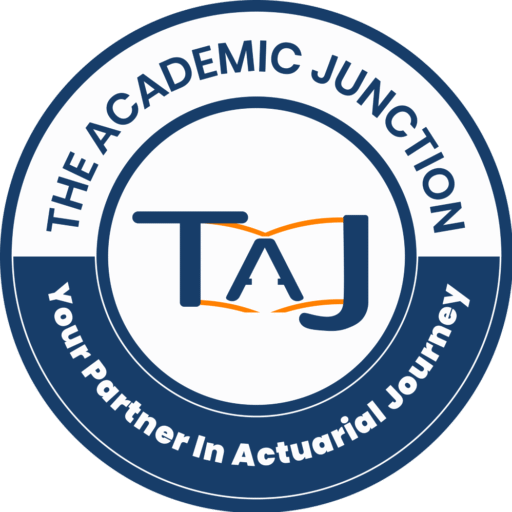Definitive Guide to SP1 (Health and Care Principles)

Introduction
The Health and Care concepts course aims to equip successful candidates with the skills necessary to apply the key actuarial planning and control concepts that are pertinent to the provision of health and care benefits in straightforward settings.
Aim & Competences
The Health and Care concepts subject seeks to develop in successful candidates the capacity to apply, in straightforward circumstances, the fundamental actuarial planning and control concepts that are pertinent to the provision of health and care benefits.
A candidate will be able to:
- grasp the key concepts and methods of actuarial management and control that are pertinent to health and care insurance after successfully completing this course.
- apply these ideas to straightforward circumstances in the context of health and care insurance.
- examine fictitious situations, including exercising judgement to determine the effects of potential course of action and to create suitable proposals or recommendations pertaining to the administration of the health and care insurance industry.
Links to other subjects
- CS2 – Actuarial Statistics 2
- CM1 – Actuarial Mathematics 1
- CP1 – Actuarial Practice
- SA1 – Health and Care Advanced
Actuarial Science SP1 Demo Lectures
SP1
₹18,500.00 – ₹22,500.00Syllabus topics
Health and care products and general business environment (15%)
Product design and specific features (25%)
Risks and risk management (30%)
Models and valuation (15%)
Monitoring experience and setting assumptions (15%)
These weightings represent the averaged over several examination sessions approximate balance of the evaluation of this subject amongst the major syllabus topics. The weightings correspond to the number of learning materials that each syllabus topic requires. The relative complexity of each topic, and consequently the amount of justification and support needed for it, will also be reflected in this.
- The depth of prior knowledge that is anticipated;
- The requirement to give comprehensive foundation understanding on which to build the other objectives.
- How much of each subject is knowledge- versus application-based.
Skill levels
The use of a certain command verb in a syllabus objective does not imply that this is the only way to enquire about the subject matter covered by that objective. The Examiners may use any of the authorised command verbs, which are detailed in the document “Command verbs used in the Associate and Fellowship written examinations,” to ask a question about any topic covered by the curriculum.
Any skill level may be represented by a question, including Knowledge (demonstration of thorough knowledge and understanding of the topic), Application (demonstration of the ability to apply the guiding principles of the topic within a given context), and Higher Order (demonstration of the ability to perform more in-depth analysis and assessment of situations, including making judgements, accounting for different points of view, comparing and contrasting situations, and suggesting solutions).
25% Knowledge, 50% Application, and 25% Higher Order skills are roughly the three skill types assessed in the SP disciplines.
Exam Fees:
| SR. NO. | SUBJECT | FOR INDIA AND SAARC COUNTRIES (INR) | FOR OTHER THAN SAARC COUNTRIES (INR) |
| Core Principles | |||
| 1 | CS1 – Actuarial Statistics | 5000 | Not Applicable |
| 2 | CS2 – Risk Modelling and Survival Analysis | 5000 | Not Applicable |
| 3 | CM1 – Actuarial Mathematics | 5000 | Not Applicable |
| 4 | CM2 – Financial Engineering and Loss Reserving | 5000 | Not Applicable |
| 5 | CB1 – Business Finance | 3000 | 7500 |
| 6 | CB2 – Business Economics | 3000 | 7500 |
| 7 | CB3 – Business Management | 10000 | 10000 |
| Core Practices | |||
| 8 | CP1 – Actuarial Practice | 8000 | 20000 |
| 9 | CP2 – Modelling Practice | 10000 | Not Applicable |
| 10 | CP3 – Communications Practice | 8000 | 20000 |
| Specialist Principles Stage (SP) | |||
| 11 | SP1 – Health and Care | 6000 | 15000 |
| 12 | SP2 – Life Insurance | 6000 | 15000 |
| 13 | SP4 – Pension and Other Benefits | 6000 | 15000 |
| 14 | SP5 – Investment and Finance | 6000 | 15000 |
| 15 | SP6 – Financial Derivatives | 6000 | 15000 |
| 16 | SP7 – General Insurance Reserving and Capital Modelling | 6000 | 15000 |
| 17 | SP8 – General Insurance – Pricing | 6000 | 15000 |
| Specialist Advanced Stage (SA) | |||
| 18 | SA1 – Health and Care | 7500 | 18750 |
| 19 | SA2 – Life Insurance | 7500 | 18750 |
| 20 | SA3 – General Insurance | 7500 | 18750 |
| 21 | SA4 – Pension and Other Benefits | 7500 | 18750 |
| 22 | SA7 – Investment and Finance | 7500 | 18750 |
Exam dates:
Timetable – May 2023 Examination
Thursday 18th May – Saturday 27th May 2023
| Day and Date | Forenoon | Afternoon | ||
| Subject | From to | Subject | From to | |
| 18-05-2023
Thursday |
CB1 Business Finance | 10.15 – 13.30 Hrs.
10.15 – 13.30 Hrs. |
CP1A Actuarial Practice | 14.45 – 18.00 Hrs. |
| 19-05-2023
Friday |
CB2 Business Economics
SP2 Life Insurance |
10.15 – 13.30 Hrs.
10.15 – 13.30 Hrs. |
CP1B Actuarial Practice | 14.45 – 18.00 Hrs. |
| 20-05-2023
Saturday |
SP5 Investment and Finance | 10.15 – 13.30 Hrs. | SA1 Health and Care
SA2 Life Insurance SA3 General Insurance SA4 Pensions and Other Benefits SA7 Investment and Finance |
14.45 – 18.00 Hrs. |
| 23-05-2023
Tuesday |
CS1A Actuarial Statistics
SP4 Pensions and Other Benefits |
10.15 – 13.30 Hrs.
10.15 – 13.30 Hrs. |
CS2A Risk Modelling and Survival
Analysis SP7 General Insurance Reserving and Capital Modelling |
14.45 – 18.00 Hrs.
14.45 – 18.00 Hrs. |
| 24-05-2023
Wednesday |
CM1A Actuarial Mathematics
SP6 Financial Derivatives |
10.15 – 13.30 Hrs.
10.15 – 13.30 Hrs. |
CM2A Financial Engineering and Loss
Reserving SP8 General Insurance : Pricing |
14.45 – 18.00 Hrs.
14.45 – 18.00 Hrs. |
| 25-05-2023
Thursday |
CS1B Actuarial Statistics
(Computer based-R)
|
10.15 – 12.00 Hrs. | CS2B Risk Modelling and Survival
Analysis (Computer based-R) |
14.45 – 16.30 Hrs. |
| 26-05-2023
Friday |
CM1B Actuarial Mathematics
(Computer based-Excel) CP3 Communication Practice (Computer Based- Word) |
10.15 – 12.00 Hrs.
10.15 – 13.30 Hrs |
CM2B Financial Engineering and Loss Reserving (Computer based-Excel) | 14.45 – 16.30 Hrs. |
| 27-05-2023
Saturday |
CP2A Actuarial Modelling
(Computer based-Excel) |
10.15 – 13.30 Hrs. | CP2B Actuarial Modelling
(Computer based-Excel) |
14.45 – 18.00 Hrs. |
| AM: | PM: |
| 9.30 Room Preparation | 14.00 Room Preparations |
| 10.00 Students enter room | 14.30 Students enter room |
| 10.15 – 13.30 Exam Duration | 14.45 – 18.00 Exam Duration |
Exam centre:
| Code | Centre Name | Code | Centre Name |
| 1 | Mumbai | 9 | Jaipur |
| 2 | Delhi | 10 | Ahmedabad |
| 3 | Kolkata | 11 | Lucknow |
| 4 | Bangalore | 12 | Chandigarh |
| 5 | Gurgaon | 13 | Indore |
| 6 | Chennai | 14 | Kochi |
| 7 | Pune | 15 | Coimbatore |
| 8 | Hyderabad | 16 | Guwahati |
Also Explore : Actuarial Science Coaching in Mumbai
Conclusion
To sum up, passing the SP1 exam requires a thorough comprehension of challenging material. Academic Junction provides the best platform to make your experience of SP1 preparation rewarding. Our highly skilled teachers, creative instructional strategies, and goal-oriented approach have continuously yielded top performers.
Academic Junction is dedicated to assisting students in mastering SP1, as we recognize its significance. With the help of state-of-the-art resources and knowledgeable staff, we guarantee that our students receive the greatest preparation available.
Academic Junction is your partner in academic success, whether you’re in Mumbai or elsewhere. Come along and use the SP1 to realize your greatest potential. Selecting Academic Junction is more than just picking a coaching program; it’s an investment in your future achievements.
Frequently Asked Questions
What is SP1 in actuarial science?
Health and Care SP1. Expert Principles. Aim. The Health and Care concepts course aims to equip successful candidates with the skills necessary to apply the key actuarial planning and control concepts that are pertinent to the provision of health and care benefits in straightforward settings.
What subjects in SP1?
- Health and care products and general business environment (15%)
- Product design and specific features (25%)
- Risks and risk management (30%)
- Models and valuation (15%)
- Monitoring experience and setting assumptions (15%)
What is SP1 actuary?
Expert Principles. The goal of Health and Care Principles (SP1) is to improve a student’s capacity to apply, in straightforward circumstances, the key actuarial planning and control principles that are pertinent to the delivery of health and care services.




